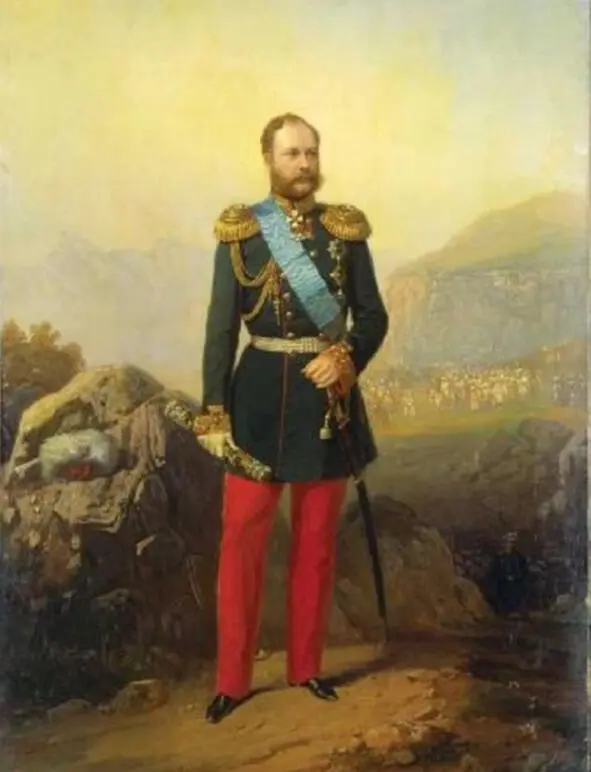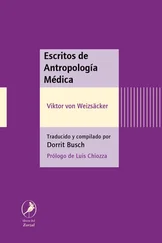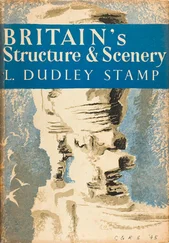The vicegerent, like a mountaineer kidnapped and hid his beloved Georgian princess in the place, where nobody could take her away from him according to strict Russian laws. This is what was meant by “treatment abroad”. This escape with the mistress did not suppose a quick return. The career cross was finished. Baryatinsky resigned but received it only in 1862. Outraged husband came abroad to demand satisfaction. The field marshal fought a duel for the sake of the love of the beautiful Georgian woman. For a long time that duel blocked the opportunity for Baryatinsky to return to Russia, which he badly missed.
They had lived together with Elizaveta Dmitrievna, nee Princess Orbeliani Dzhambakur-Orbeliani for almost 20 years. The Prince died in Geneva, but his will was to be buried in Kursk province, in the ancestral village of Ivanovo, which was fulfilled. [9]
As we can see, the biography of this remarkable man, his temperament and nature not only allowed him to win on the battlefield and resolutely implement the reforms, most daring for that time (including those in the postal service), but also to undertake the steps in his personal life, which none of his contemporaries would dare!
Prince A.I. Baryatinsky – a vicegerent and a reformer
Let’s go back to the state activity of the Prince, his role in the system of imperial power of that time. Personal correspondence of A. I. Baryatinsky and Emperor Alexander II provides a lot of information for understanding the reforms carried out at the time in the Caucasus. The letters of the considered period were included in the personal archive of Field Marshal, which after his death was handed to A.L.Zisserman, who wrote a large book on the life and work of Baryatinsky. [10]
After the revolution, the fate of the letters remained unknown. In 1966, an American researcher Alfred Rieber published a book, “The politics of autocracy”. The second part of the book is the above-mentioned letter, published retaining all the original features, including the French language. In his publication Rieber refers to the Archive of Russian and East European history and culture at Columbia University. [11]
The letters tell an interesting information about the relationship of Alexander II with Baryatinsky and are the source of information on the history of Russia’s foreign and domestic policies in the 1850—1860 and, above all, on the final stage of the Caucasian War.
Since the emperor and the vicegerent were close friends, their correspondence is personal in nature. This is evident by the way Alexander II refers to the Prince (“dear friend,” “my dear Baryatinsky”) as he passes the best wishes from his spouse and from the Empress Dowager (she died in 1860). When writing a letter in French the emperor addresses his interlocutor using polite “you”, but in Russian phrases he turns to friendly “you”.
The financial situation in the country was very difficult after the Crimean War. Alexander II constantly reminded his vicegerent about it, demanding a “wise economy” of funds and curtailment of expenses. Baryatinsky tried to do his best to fulfill this instruction of the monarch not only in military affairs but in the civilian affairs while ruling the region. Carrying out further reforms in the field of postal services he, as a vicegerent, set up a task in front of the management of the post office – to sort out the mess and to save the costs.

Unknown painter. Vicegerent in the Caucasus, Prince A.Baryatinsky.
The monarch approved the project of the military reforms and repeatedly reminded of the need to accelerate work on the drafting the civil part of the management restructuring, which included mail service.
Being an outstanding military commander and a great statesman, A. Baryatinsky understood that the development of communication was of great importance for the Caucasus region. Mail at that time was the only means of communication, and therefore its proper organization was a prerequisite of all planned and ongoing reforms. Without clearly-established postal service no successful military operations of the army as well as any civil transformation in the economy and social life were possible. Therefore, the vicegerent could not ignore the issues of reorganization of the post service in the Caucasus.
As it can be seen from the correspondence of Prince Baryatinsky and Emperor Alexander II, the vicegerent of the Caucasus had the most extensive powers granted to him by the law, and he had practically unlimited power of the tsar deputy in the region. Taking any decision on reorganization on the territory, trusted to hi, the vicegerent could always be sure of the support of the emperor, which was repeatedly used to solve serious financial and political issues. The Emperor used to write to him: “You decide yourself on the spot…” [12]
As soon as he was appointed a vicegerent, A.I.Baryatinsky had immediately taken the first steps to provide his full independence. On August 8, 1856, he filed a memorandum to Alexander II in which he asked to withdraw all the incomes and expenses on the Caucasus region from under the authority of the Ministry of Finance and give the vicegerent a complete freedom over them, as it was until 1840. Thus, in 16 days after his appointment the vicegerent of the Caucasus, Alexander Baryatinsky got free of the Minister’s of Finance patronage.
On April 25, 1857, the decree that regulated relations between the vicegerent of the Caucasus and the Senate was issued. Prince Baryatinsky received the right to suspend the execution of the decrees of the Senate in judicial, civil or criminal affairs in case of “local inconvenience, trouble or harm” for the Caucasus region. When the cases referring to the Caucasus came to the Senate, the Senate was deprived of the possibility to send them to the Ministry for consideration and could refer only to the vicegerent.
At the General Directorate of the vicegerent, Prince Baryatinsky established a Temporary department, where all the cases requiring new legislative measures on the issues pertaining to the different sections of the management and the development of well-being in the region were concentrated, and which was in charge of preparation and development of various projects. This department was also involved in the collection of “detailed and correct information about the status of the region, the progress made in the cases, the costs and other issues connecting with the administrative statistics of the vicariate.”

The painter A.O. Orlovsky. Troika. Military courier. 1812.
Vicar was given the highest supervision over the execution of laws by local institutions. All the offices and officials as well as individuals located in the Caucasus had to report to him. The vicegerent was the chief administrator of credits.
According to the law, the vicegerent had the right to expel any person from the region if such residence was recognized harmful. But they were not only individuals, who were expelled. After the victory over the mountaineers in the Caucasian war, the whole nations were expelled. The vicegerent was charged with supreme supervision of the Muslim clergy and the spiritual establishment. [13]
Expanding his reform efforts in the Caucasus Prince A.Baryatinsky immediately drew attention to the improvement of postal services in the region. A postal service at the time urgently demanded its radical change.
Читать дальше














